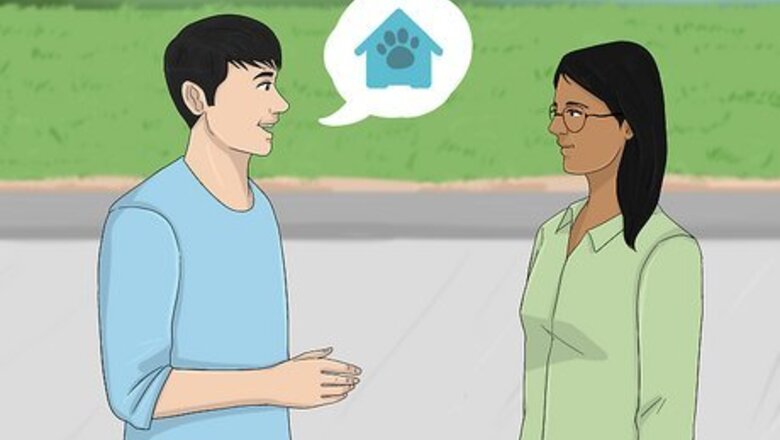
views
Advertising Your Litter
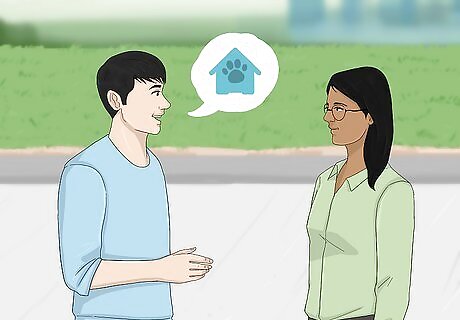
Start early. You should start looking for homes for the litter before they are even born. Not only will this give you time to screen potential adopters but it can also help you find a new home for a puppy if an adopter backs out. If the puppies have already been born, you should start looking for homes immediately.

Contact breeding clubs. If the puppies are purebred, you should contact the breeding club that the dog is registered with. This can be a national kennel club, such as the American Kennel Club or the United Kennel Club, or this might be a breed-specific club. Breeding clubs can help you find experienced owners. They can also provide references for potential adopters who have owned the breed before. You should look into registering the puppies with their breeding club as soon as possible. This can help you find good homes for the puppies as registered puppies may be more attractive to certain adopters.
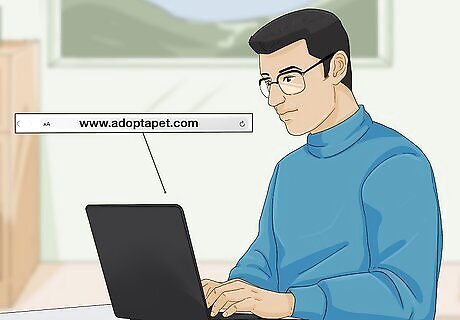
Post a profile on an adoption website. If the puppies have already been born, you can try posting individual profiles for each puppy on an adoption website. Here you can list the puppy's temperament, age, breed, and other details. You should post a picture of the puppy as well. Potential adopters will contact you through the site. Some good adoption websites include: Petfinder Adopt a Pet

Tell other people. Word of mouth is a powerful tool. Start telling your friends and family that you will have a litter of puppies to adopt out. Ask them if they know of anyone who wants to adopt a puppy. You can even post on your social media pages that you have puppies who need homes.
Screening Potential Adopters
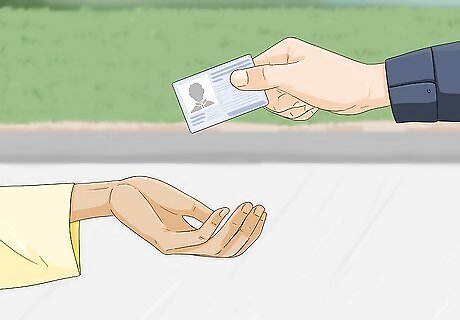
Research potential adopters. You should perform a basic background check on interested parties to make sure that they do not have a history of animal abuse, irresponsible breeding, or selling puppies for profit. Ask for a copy of their driver's license or ID. Verify that they live at that home address, and perform a basic internet search to see if any unsavory details pop up.
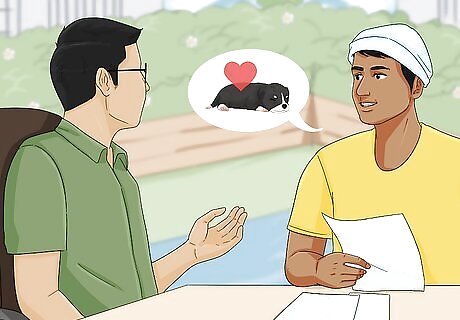
Interview candidates. Before you agree to hand over a puppy to a stranger, you should thoroughly investigate them to make sure that they are capable and willing to raise the puppy properly. A good home will be one where the owners provide the dog with enough attention, exercise, food, and medical care. You also want to ascertain that the candidates are absolutely aware and dedicated to the time and effort that raising a puppy requires. You can ask: What do you want a puppy for? Are you looking to have a family pet or do you want to breed the puppy? Have you ever owned a dog before? If so, can you tell me about them? Have you ever owned a puppy before? Have you trained a puppy before, such as house training, leash training, and basic obedience? Are you aware of what type of care this dog needs? What is your job? How many hours a day will the puppy be alone? Do you live in a house or an apartment? Do you have a fenced-in yard? Are there children in the home? Are there other pets in the home? If so, how do you plan on introducing them to the puppy?
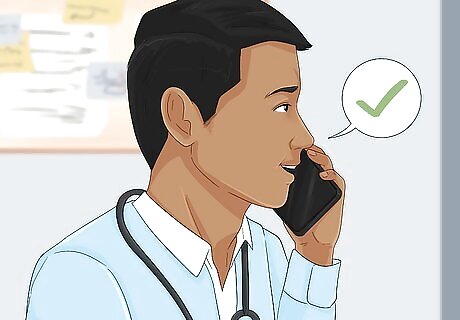
Ask for references. Puppies are not an ideal choice for first-time dog owners. To make sure that the adopter is an experienced and loving owner, you should ask for references from their vet. This will inform you how well this person cared for previous pets. If you have a litter of purebred puppies, you might want to ask adopters if they have a reference from the breeding club. This reference will let you know that they have successfully owned a dog of this breed before and that they are aware of the breed's specific needs. If they have never owned the breed before but have experience with other dogs, a vet's referral may still be adequate.
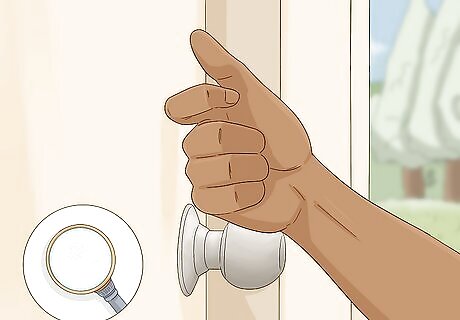
Perform a home visit. Some adopters might lie to you about their address, home, or living conditions. To make sure that the puppy does not end up in a puppy mill, shelter, or otherwise bad home, ask the adopter if they would be willing to let you do a home check. Schedule a time when you can visit. This will allow you to make sure that the address they provided you is accurate. You can also see the size of the home, whether or not there is a yard, and whether the home would be safe for a puppy. A quiet, clean home is ideal for a puppy. Apartments may be fine for smaller or more inactive breeds of dogs. Larger or energetic dogs may need a bigger home and a fenced-in yard. Do not do a home visit by yourself. Always bring a friend along when you are visiting a stranger's house.
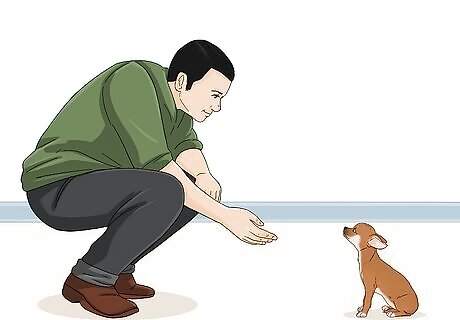
Allow candidates to visit the puppies. Once you have a few potential adopters who you think might be suitable, you should schedule a time when they can come to visit the puppies. This will let them experience the temperament of the puppy while letting you see how well they handle puppies. It will also give you another chance to ask them questions about their suitability to own a puppy. You should always have another person home when strangers come to visit. If the puppies are old enough, you should let them play with their potential new owners. This may be a good opportunity to have the candidates sign a contract and finalize their commitment to the puppy. If something seems wrong about the adopter or if new information pops up that makes you reconsider, do not be afraid to tell them that you will not give the puppy to them. You can say, “After some consideration, I do not think you would be a good candidate for this dog.”
Preparing an Adoption Contract
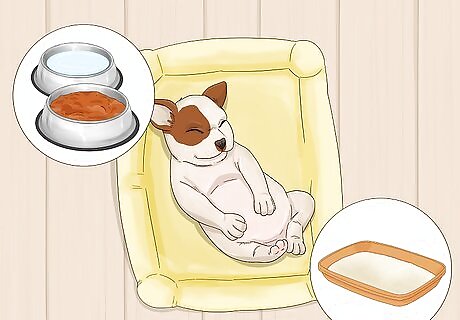
Establish basic requirements for care. The contract should spell out the minimum level of care that you expect for the puppy. While you cannot specify every aspect of the puppies care, this can reassure you that the puppy will be treated well. It can also help the new owner understand how to care for the puppy. You can require that: The puppy will be fed an adequate amount of food every day. The puppy will be disciplined using positive reinforcement and not physical punishment. The puppy will receive the right amount of exercise for their temperament and breed. The puppy will have a comfortable, quiet place to sleep. The puppy will live inside. The puppy will be microchipped.
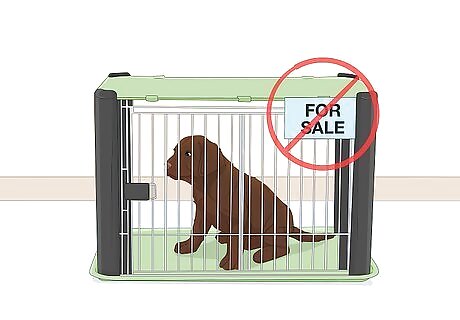
Establish a return policy. Your contract should stipulate that the buyer may not resell the puppy. This will prevent puppy mills or unscrupulous buyers from selling puppies at a profit. The contract should also state that if the new owner can no longer care for the puppy, you will be informed first. The new owner must offer you the puppy before they take the dog to a shelter. If you are a responsible breeder, you are obliged to readopt the puppy at any point of their life should the new owner be unable to care for them.
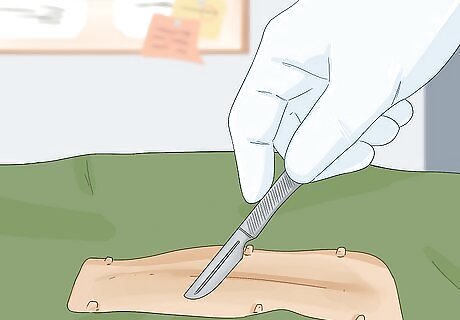
Add a spay/neuter clause. To prevent the puppy from ending up in a puppy mill or as a backyard breeder, you should add a statement in the contract stating that the new owner will not breed the puppy. To ensure this, both you and the new owner should agree that the dog will be spayed or neutered before going into their new home. You will then be responsible for spaying or neutering the dog. If someone wants the puppy to breed, they should be able to present a reference or credentials from a breeding club, the American Kennel Club, and/or the United Kennel Club. Without these references, you should not knowingly give away a puppy to be bred.
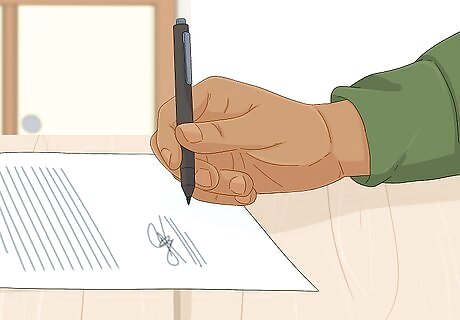
Have the new owners sign it. Once you have discussed the contract with the potential adopters, you should have them sign it. You may want to get it notarized, just in case. If the adopter does not want to sign it or if they refuse to agree to certain clauses, you may want to find somebody else.
Giving the Puppies Away
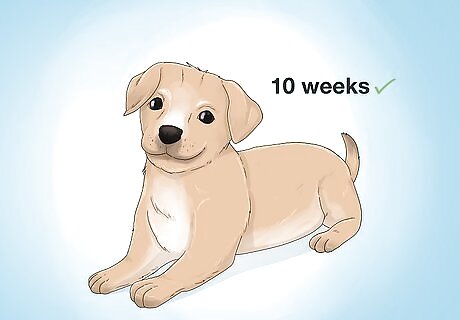
Wait until the puppy is old enough. Puppies should not be separated from their mothers before eight weeks of age. Some breeders wait until the puppy is ten weeks old. This will ensure that the puppy can thrive on their own.
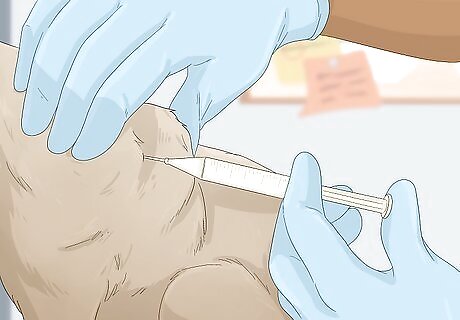
Provide the puppy with all of their necessary shots. You cannot guarantee that the new owner will give the puppy their necessary vaccinations and medical treatments. To make sure that the puppy does not fall ill, take the entire litter to the vet to be vaccinated before you give them away. Between six and eight weeks of age, the puppies should have distemper, measles, parainfluenza, and Bordetella shots. Between eight and ten weeks of age, they should have shots for distemper, adenovirus (hepatitis), parainfluenza, and parvovirus. Vaccinations for coronavirus, leptospirosis, and Lyme disease are optional but recommended.
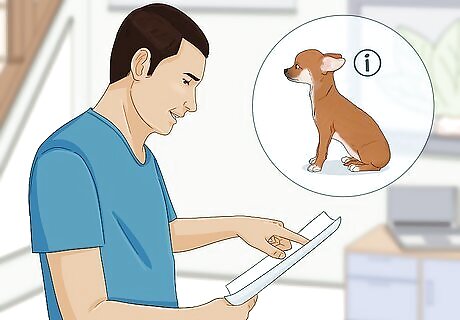
Provide the new owner with information about the puppy. Each new owner should be given a packet that explains the puppy's temperament, breed, feeding needs, and a basic outline of a puppy's development over the first year of life. The new owner should also be given the puppy's medical records. Puppies can get sick if the brand or type of food they are fed is switched too suddenly. You may want to give the new owner a small bag of the brand of food you have been feeding them.
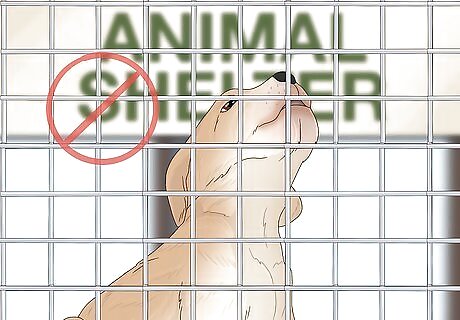
Avoid placing them in a shelter. If you cannot place puppies with a good home, you are responsible for raising them. A responsible breeder will not abandon puppies at a shelter. Many puppies are killed within two weeks of being left at a shelter. Continue looking for new homes for the puppies but care for them as though they are your dogs. If you have too many puppies to handle, you might find them temporary foster homes until you can find them a permanent home.




















Comments
0 comment